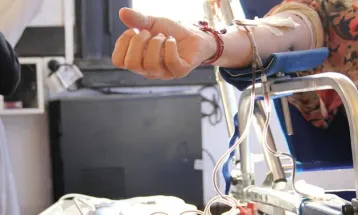
Mpox Outbreak in Sierra Leone Sparks Concern Across Africa – Africa CDC Warns
A recent spike in Mpox cases in Sierra Leone is raising alarm across the African continent, according to the Africa Centres for Disease Control and Prevention (Africa CDC).
Health officials are warning that if urgent steps aren’t taken to contain the virus, it could pose a serious regional threat. The outbreak in Sierra Leone is part of a wider resurgence of Mpox in parts of West and Central Africa.
Dr. Ngashi Ngongo, Chief of Staff at Africa CDC, gave this update during a public webinar on Friday, stressing the need for swift and coordinated action.
Mpox is a viral disease that spreads through close contact and usually causes flu-like symptoms and skin lesions. While it is often mild, it can be deadly and continues to be treated as a public health emergency. The World Health Organization (WHO) officially declared it an emergency in August 2024.
According to Dr. Ngongo, Sierra Leone alone reported 384 confirmed cases within just one week—accounting for over half of the reported cases across Africa. He noted that the country, which declared Mpox a public health emergency back in January, has seen a 63% increase in cases in that short time.
“We’re seeing a health system under pressure,” Ngongo explained. “There are only 60 beds available in treatment centres, yet there are about 800 active cases. Many patients are having to stay at home.”
He said the lack of funding remains a major challenge, alongside limited capacity for contact tracing and lab testing. The Africa CDC previously warned that proposed budget cuts from the U.S. could seriously undermine efforts to control outbreaks like this.
On a more hopeful note, Ngongo mentioned that Mpox cases in Uganda and Burundi are declining, and in the Democratic Republic of Congo, the situation appears to be stabilizing.
Health experts continue to stress the importance of prevention. This includes avoiding close contact with infected people or animals, maintaining good hygiene, disinfecting items that may carry the virus, and using protective equipment. Vaccination is also encouraged for those at higher risk.
Public education and awareness, they say, will remain critical in slowing the spread of the virus.


















